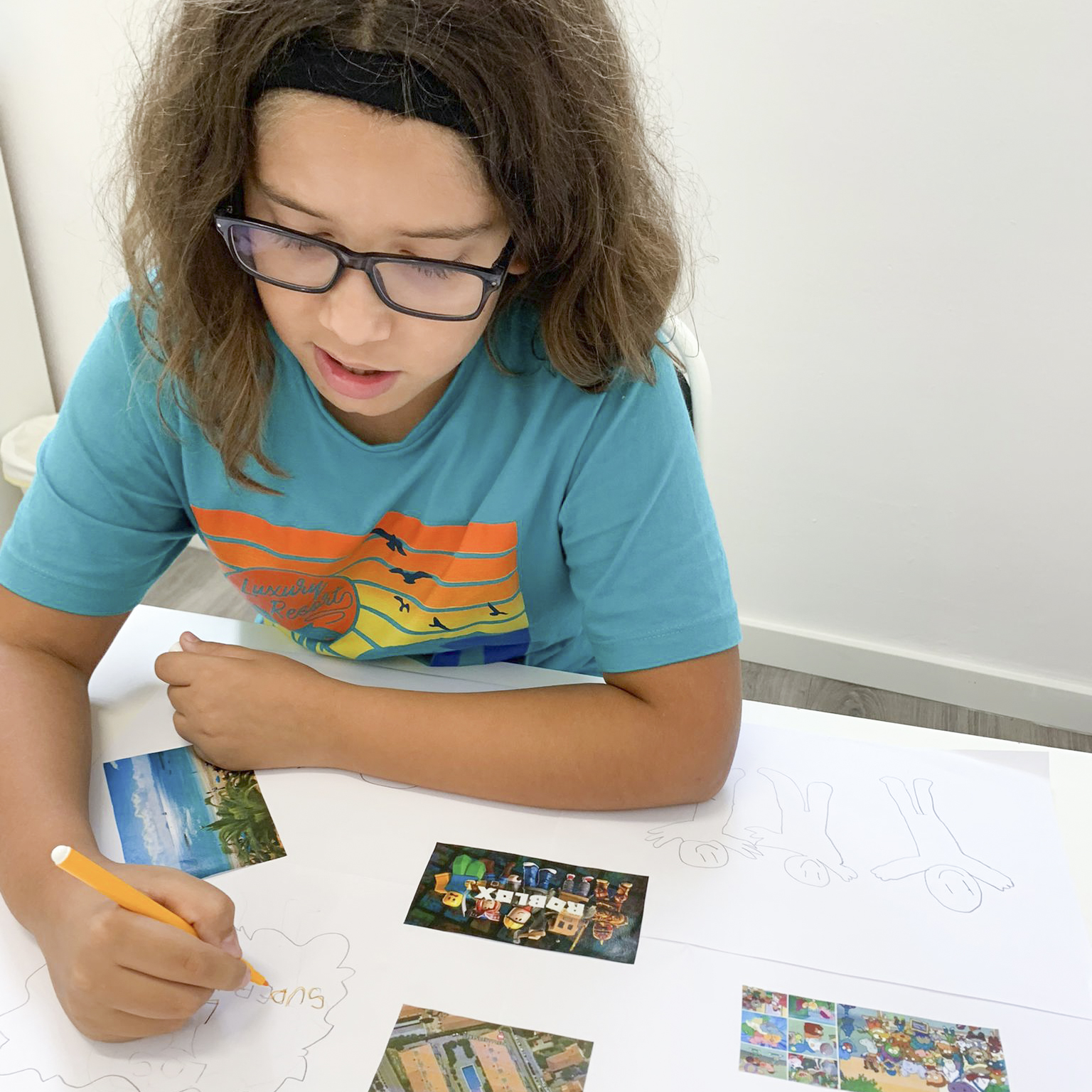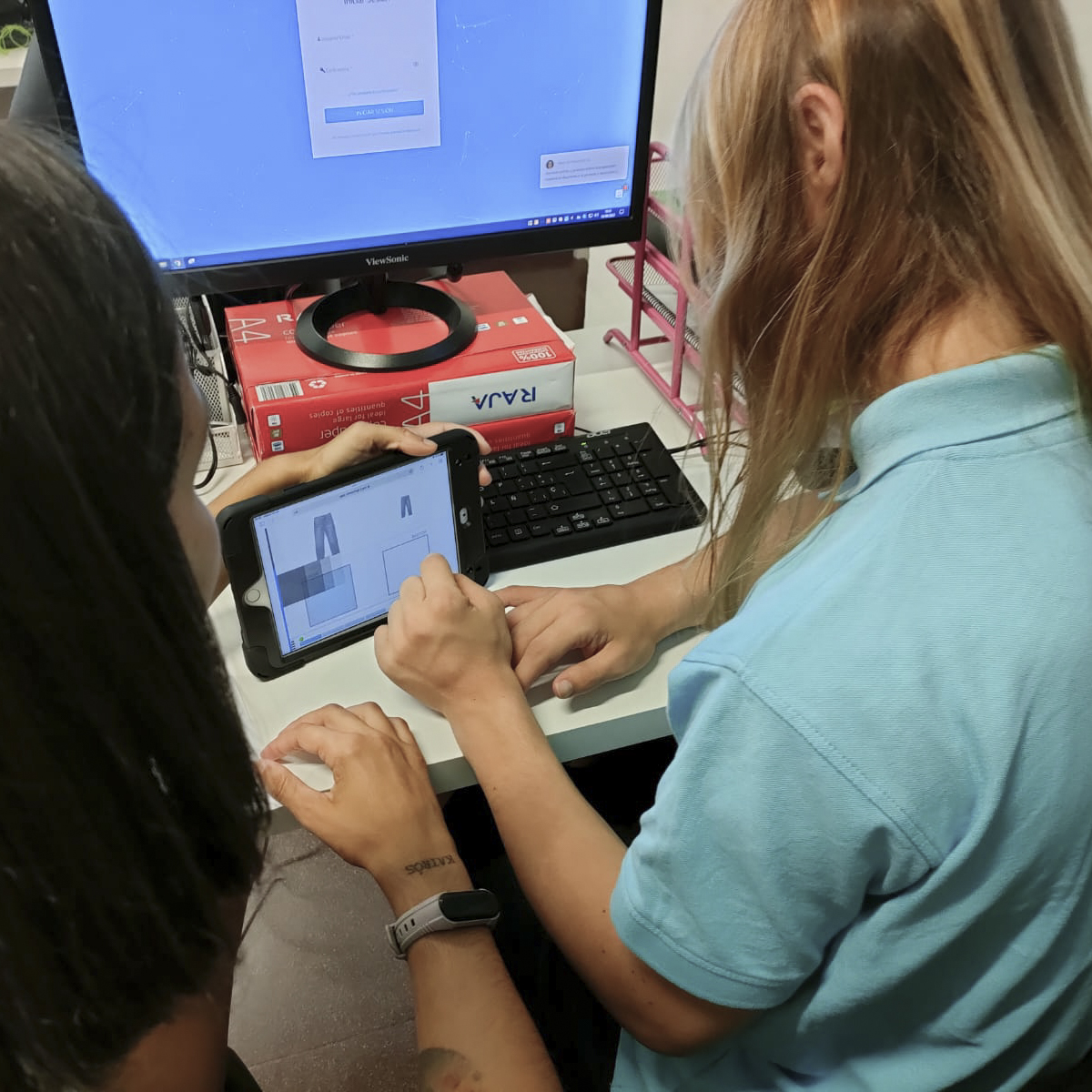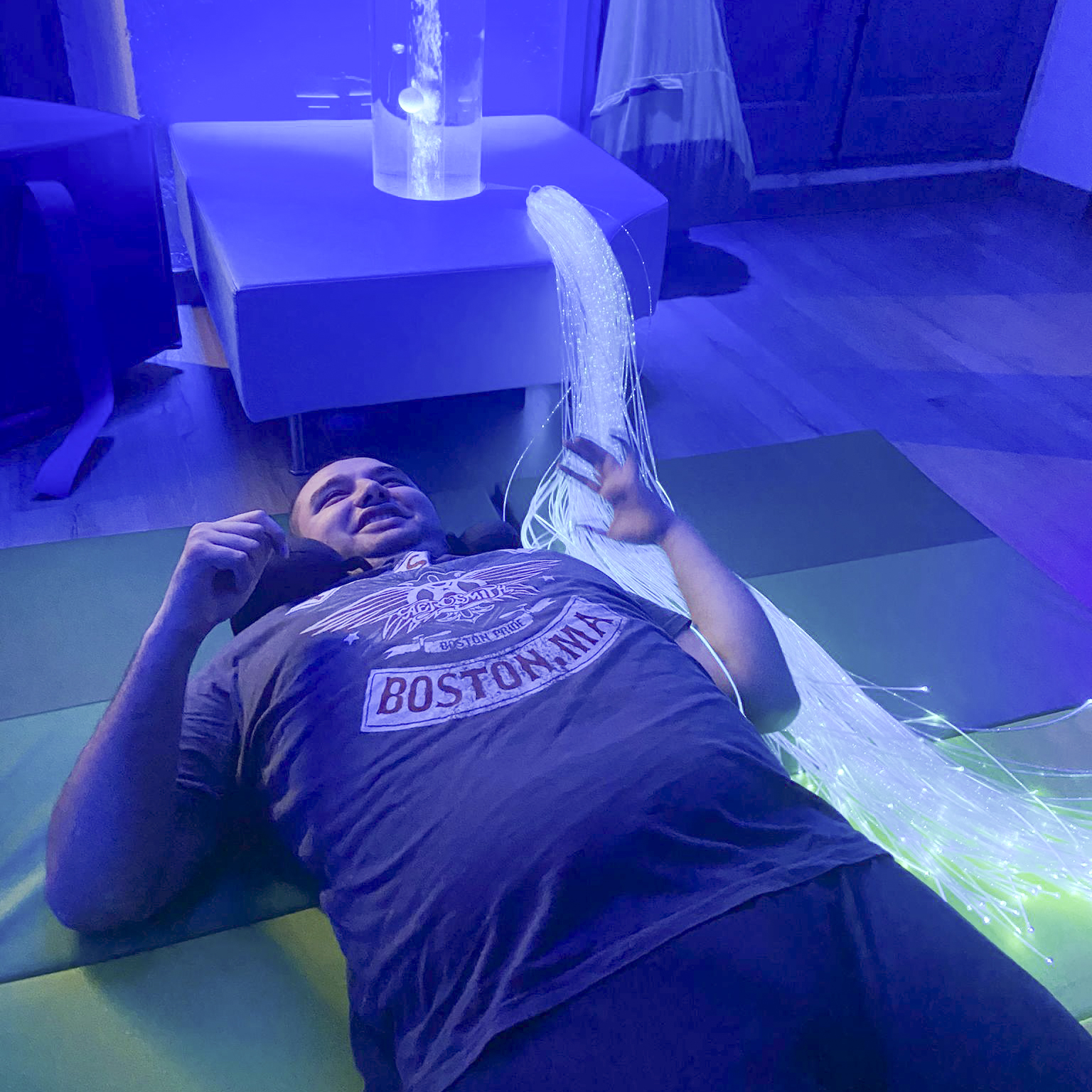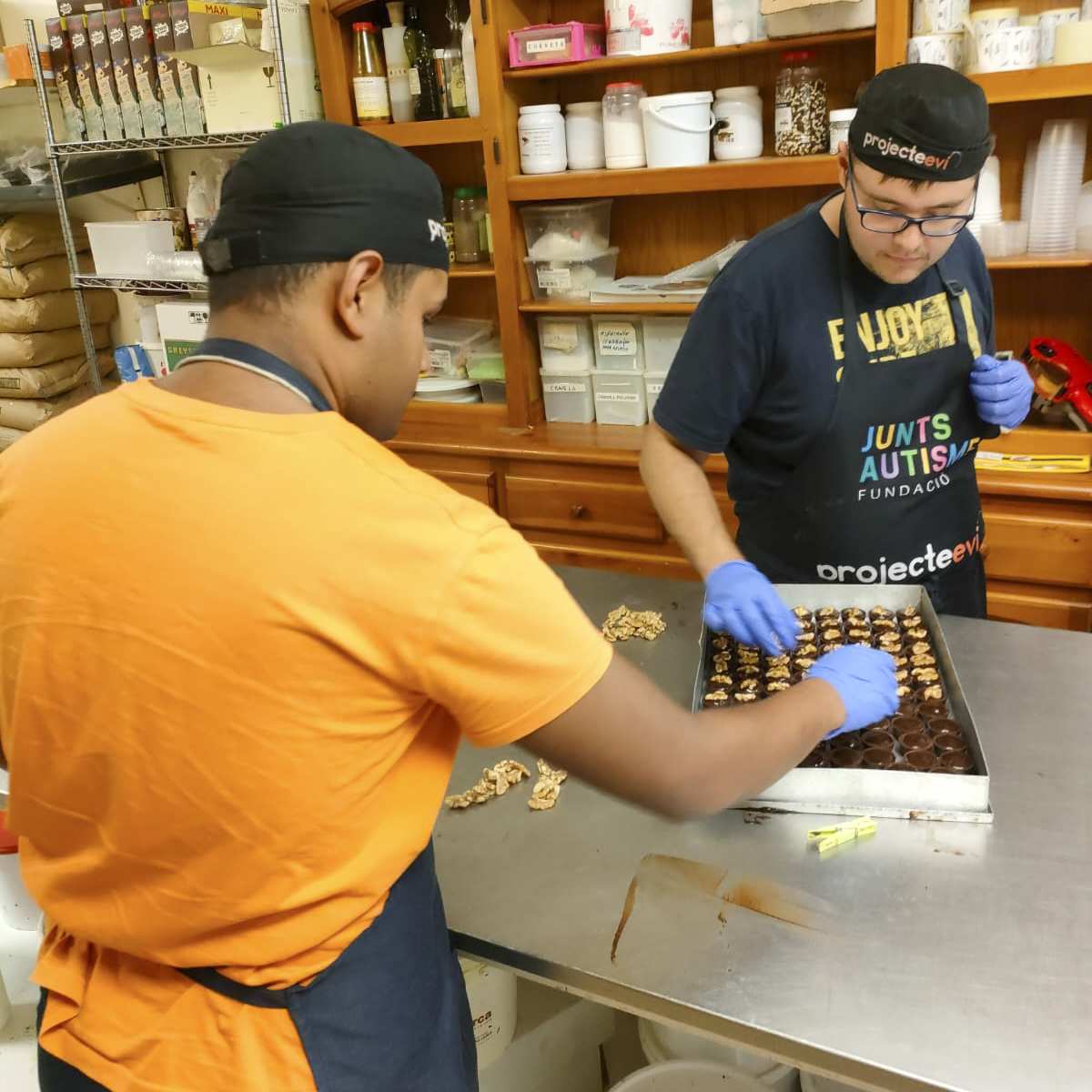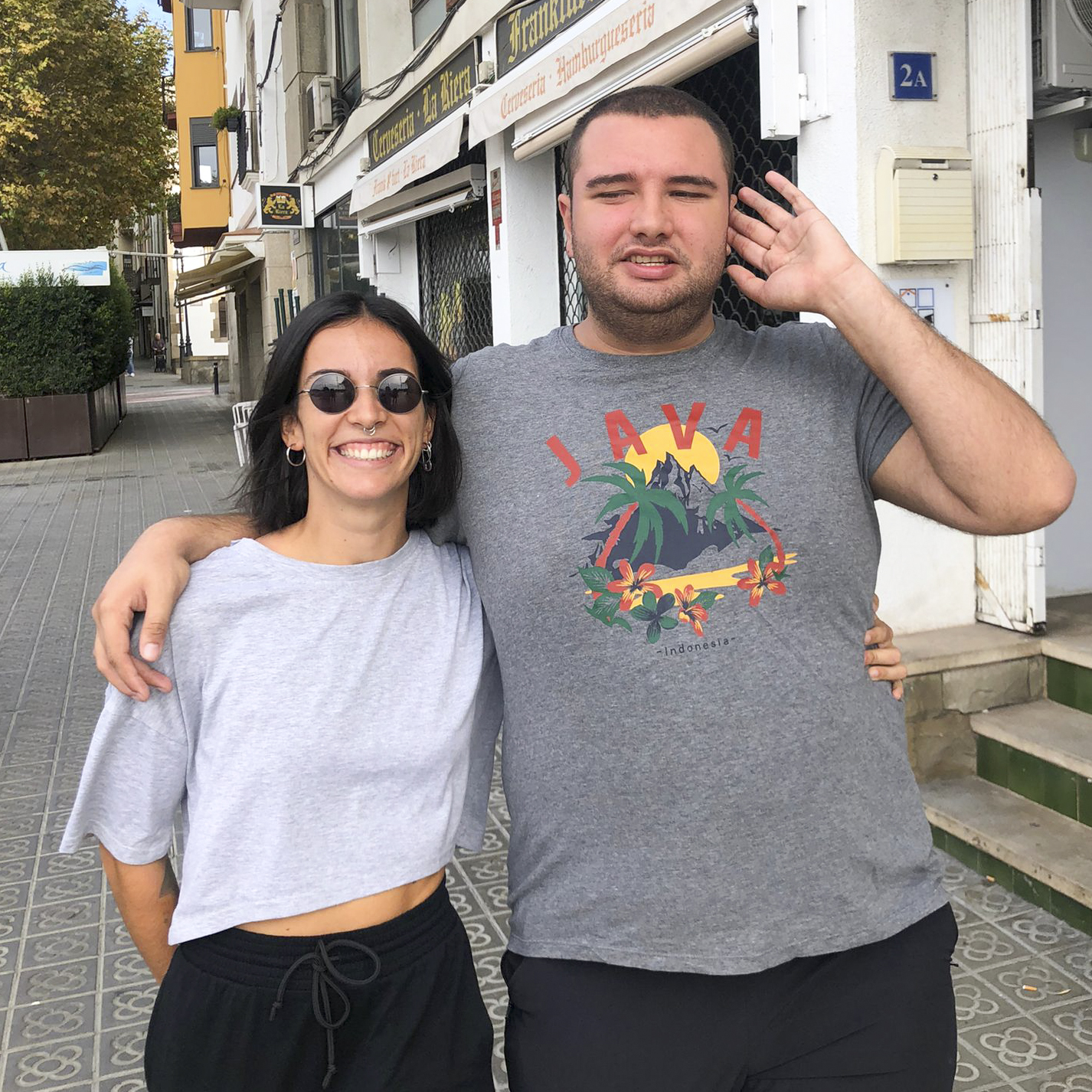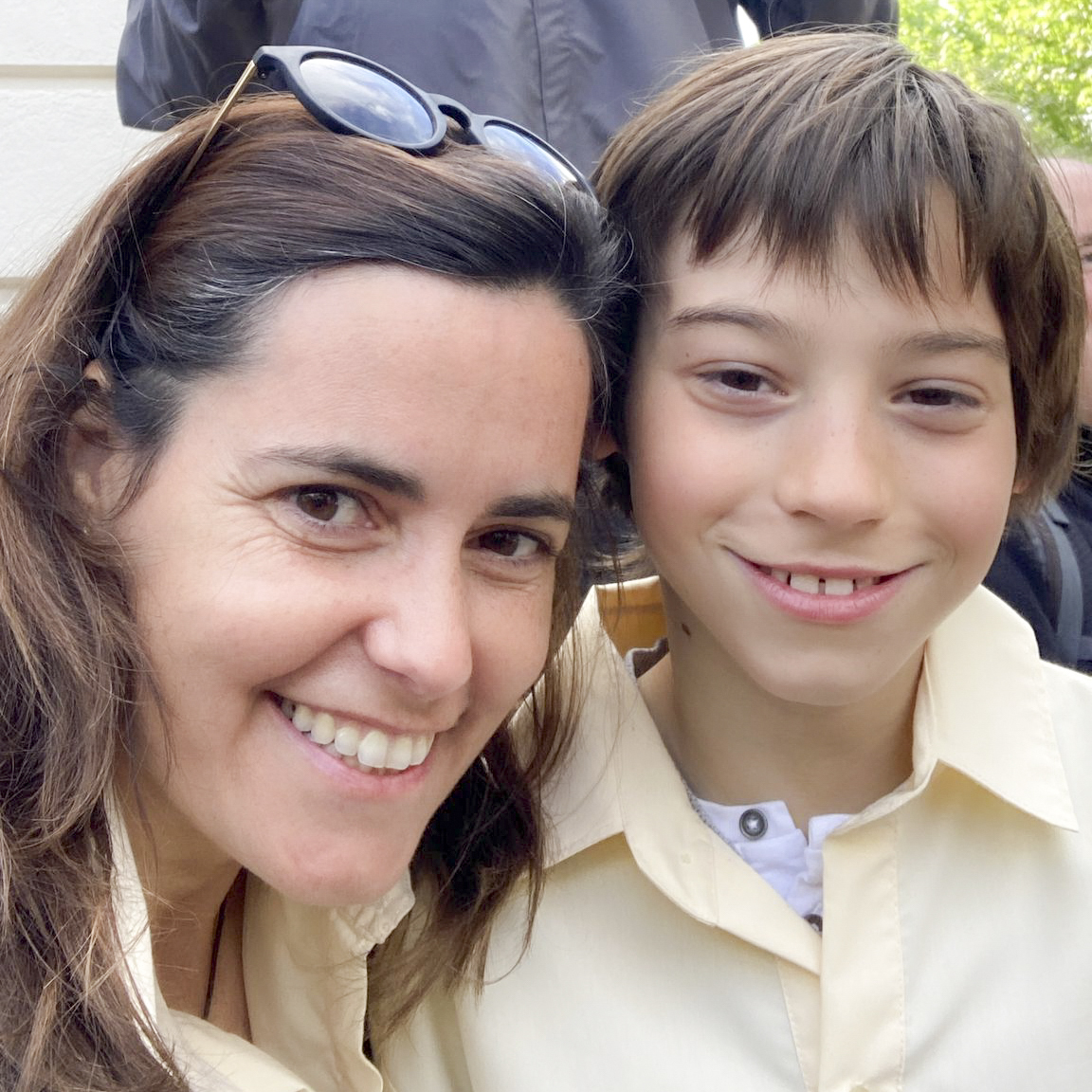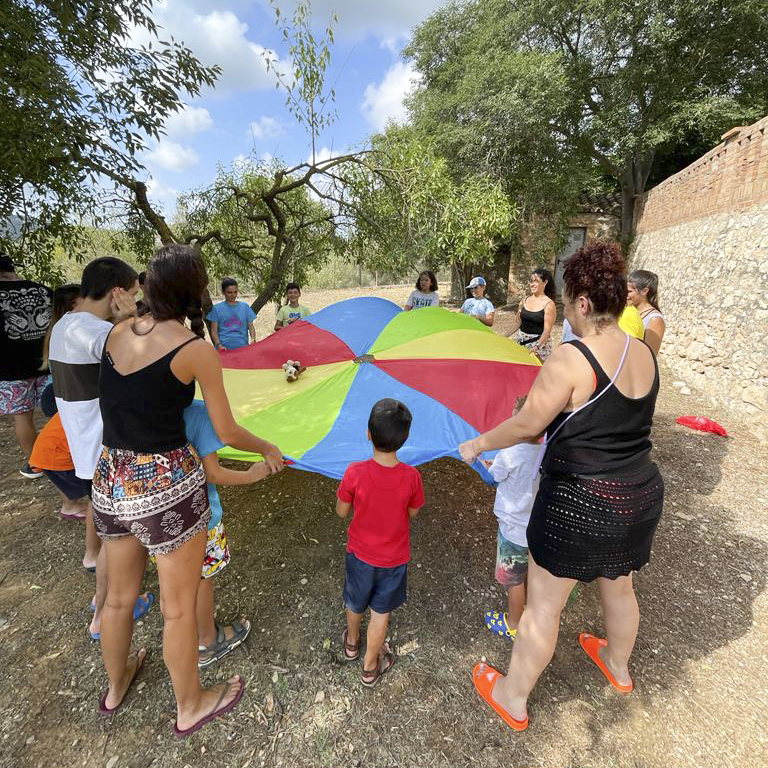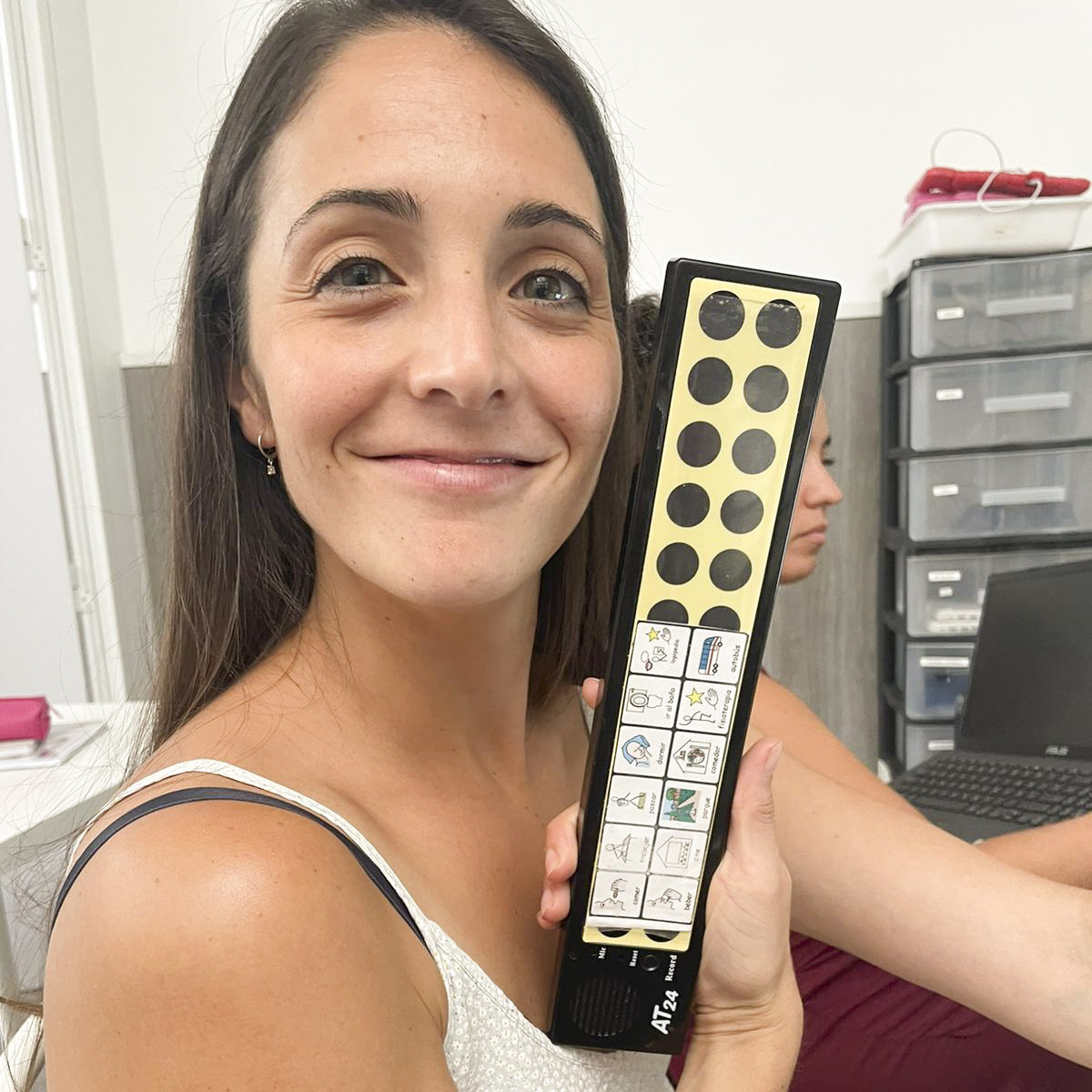Supporting the transition to adult life
For more than six years, the organisation has been running a project to support people with autism in their transition to adult life. Specific interventions and support begin at the start of adolescence, and are gradually introduced according to the needs and characteristics of each person.
This project was named:
Independent Living Space Project (EVI Project)
With the EVI Project, we support the transition to adulthood for people with autism, helping them develop the highest possible degree of autonomy from the start of adolescence, a period of significant changes and transformations for each person.
Adolescence is a difficult time for anyone, but adolescents with autism and their families face even greater challenges. All the learning and experiences during this period will determine the level of autonomy the person can achieve in the future. It also affects their degree of social inclusion and participation in the community.
The EVI Project promotes the acquisition of pre-employment skills and active participation in inclusive environments. The project takes into account the eight dimensions of Schalock and Verdugo’s concept of “Quality of Life,” which are essential for the meaningful development of all people at every stage of their life cycle (Schalock and Verdugo, 2002/2003).
In planning the interventions, supports, and activities included in the project, we focus on the individual interests, preferences, strengths, and needs of each beneficiary, keeping in mind that these may vary and evolve throughout the person’s life. Personal support is thus assessed on the basis of individual needs.


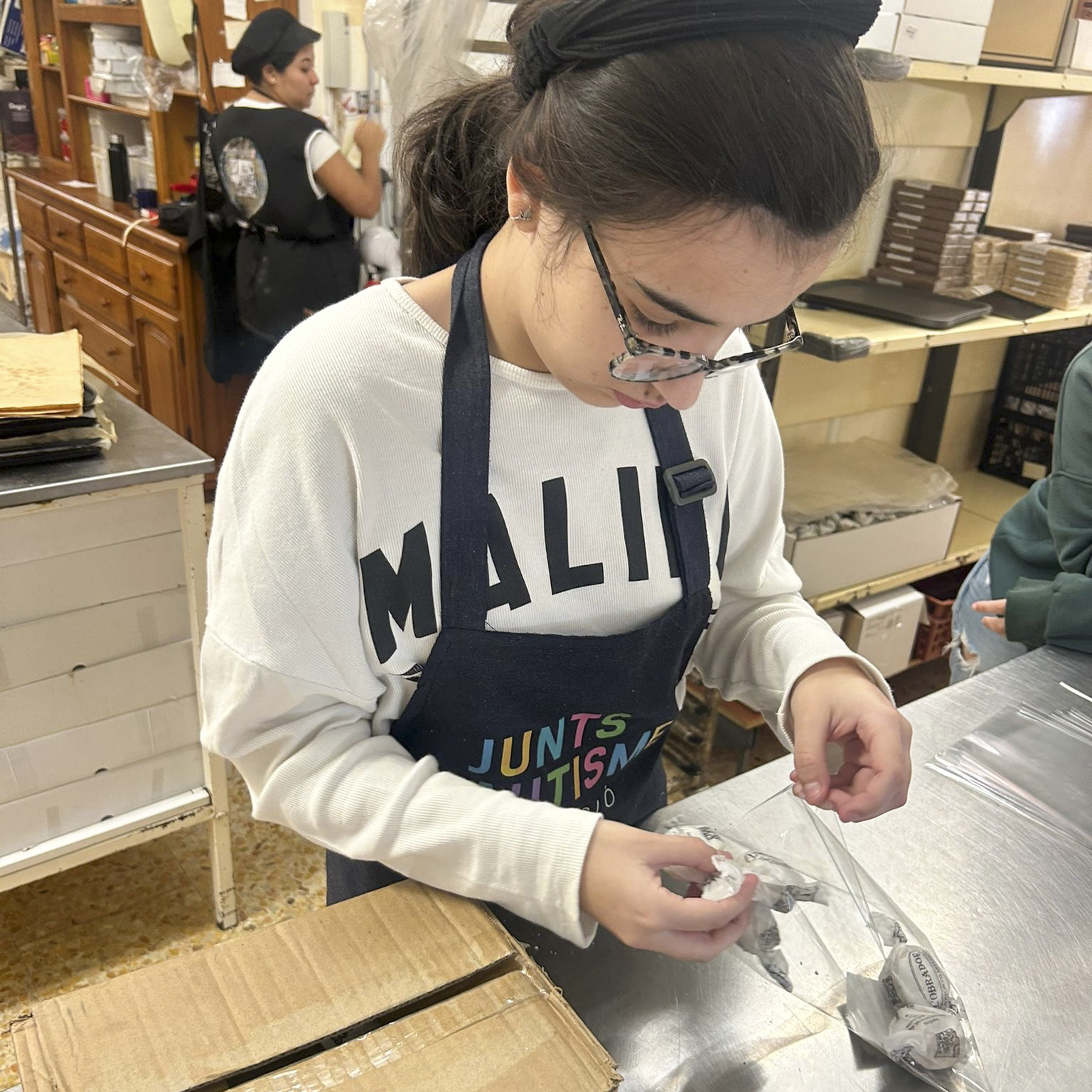
The 8 competences we develop within the EVI project are:
Physical well-being
Physical well-being consists of maintaining a state of health and physical condition that allows a person to carry out daily activities with energy, safety, and a good quality of life. The physical well-being of any individual depends primarily on a healthy diet and regular physical activity appropriate to their body and abilities. At the EVI Project, we work closely on both of these aspects.
With regard to nutrition, we focus on eating in an autonomous and healthy way, taking into account everything this daily activity involves: planning and doing the shopping, cleaning and preparing food, using kitchen utensils and appliances correctly, setting and clearing the table, and so on. To maintain good physical condition, beneficiaries engage in a variety of sports activities according to their preferences and abilities, all in inclusive environments, such as gym sessions, swimming, and climbing. In addition, they have regular access to osteopathy services and nutritional advice.
Material well-being
Material well-being refers to the resources and conditions that allow a person to live with security and stability, such as managing food, income, housing, and other essential goods.
Within the project, this concept is addressed through activities that support young people in managing the resources of their daily lives, from grocery shopping to household tasks. These activities promote their autonomy and planning skills. They also take part in pre-work experiences in real-world settings and practise everyday responsibilities, such as setting and clearing the table, watering plants, and maintaining order, gradually taking on new responsibilities so that each young person can progress at their own pace.
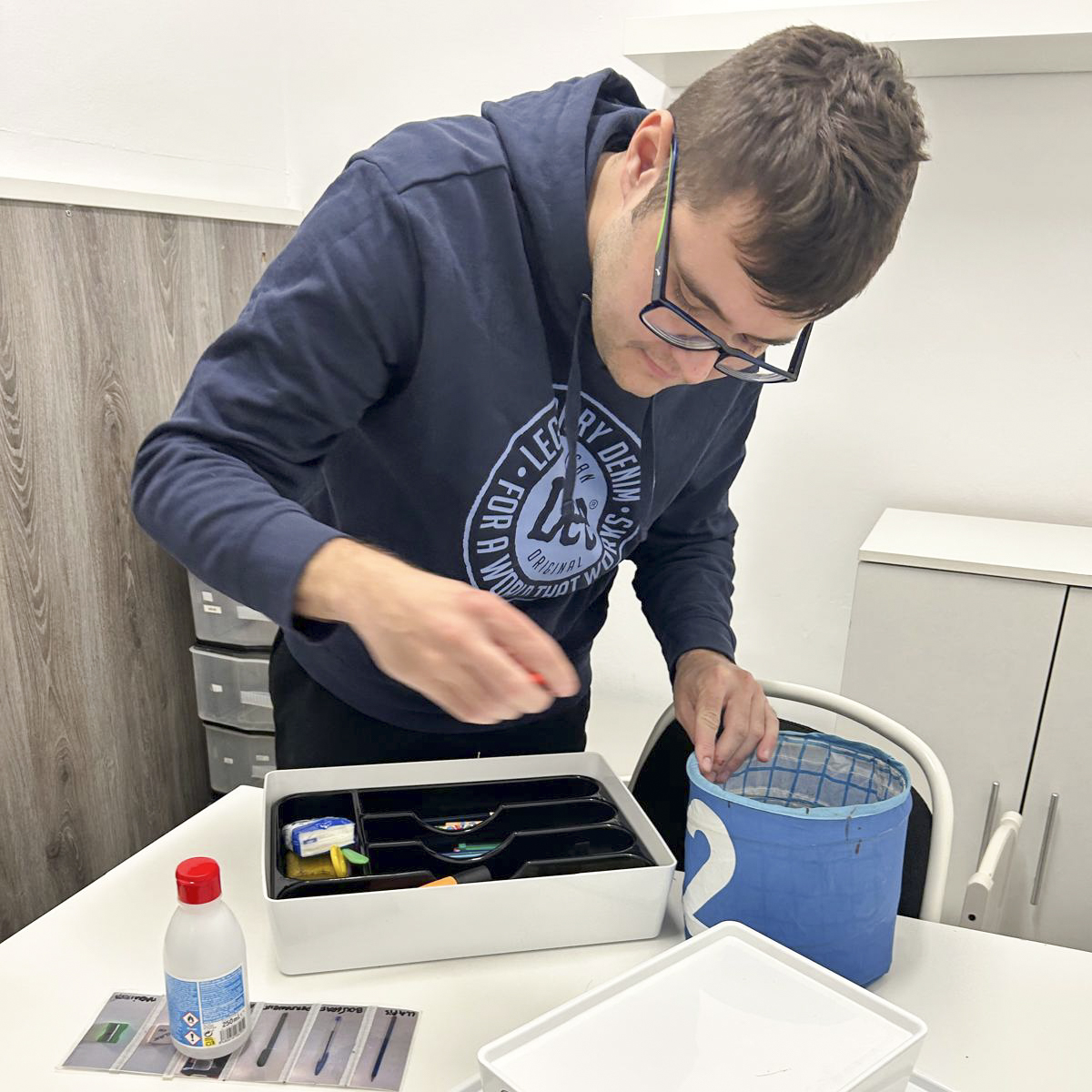
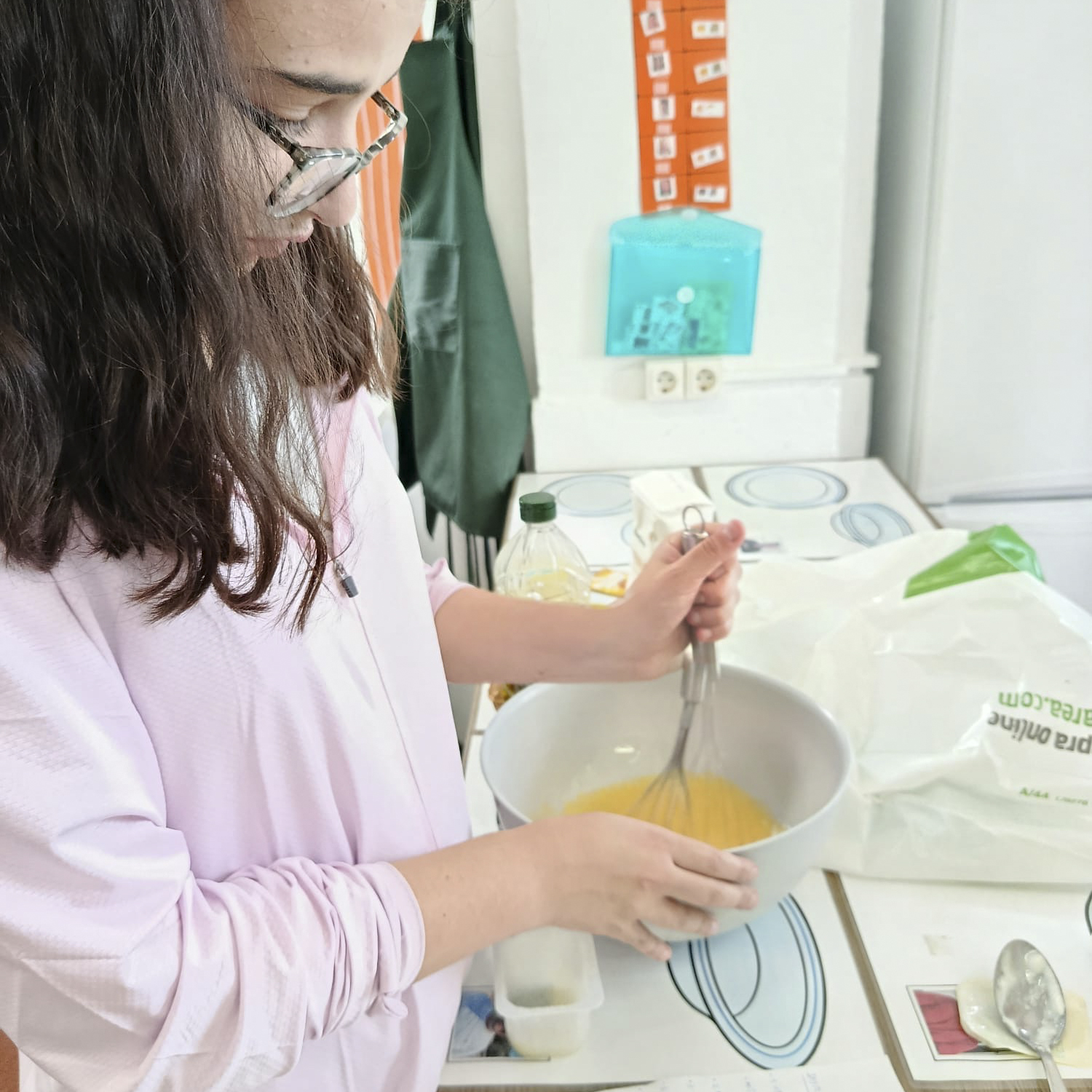

Emotional wellbeing
Emotional well-being means being able to recognise, express and manage emotions in a healthy way, as well as feeling safe and comfortable in one’s environment.
At the EVI Project, we work on emotional regulation throughout the day, from the moment young people arrive until they leave. We help each individual to recognise their emotions and provide tools and strategies to manage them appropriately. We support this aspect of well-being through activities such as yoga and relaxation techniques, as well as pre-work tasks and daily responsibilities that promote autonomy, confidence, and a sense of purpose. At the same time, we create an environment of safety, self-esteem and trust, which contributes to their emotional well-being and prepares them to face adult life with autonomy and stability.
Personal development
Personal development involves acquiring new skills, expanding knowledge, and increasing autonomy to face the challenges of daily life.
We work on this process in a personalised way: based on the results from the ICALIDAD tool, we develop a Personalised Support Plan (PAP), which allows us to define specific objectives and establish the necessary support for all activities. Support is tailored to each individual and is gradually withdrawn to enhance their autonomy. In addition, we provide learning opportunities in natural contexts, which help consolidate skills and explore interests.
Interpersonal relationships
Interpersonal relationships are the ability to create, maintain and enjoy positive and meaningful social connections with others.
Within the project, we foster these relationships so that young people can develop a community network that will support them in the future. People in their environment get to know them and become role models for them. All activities we carry out take place in inclusive settings. The privacy of each individual is respected at all times, taking into account their age and personal boundaries
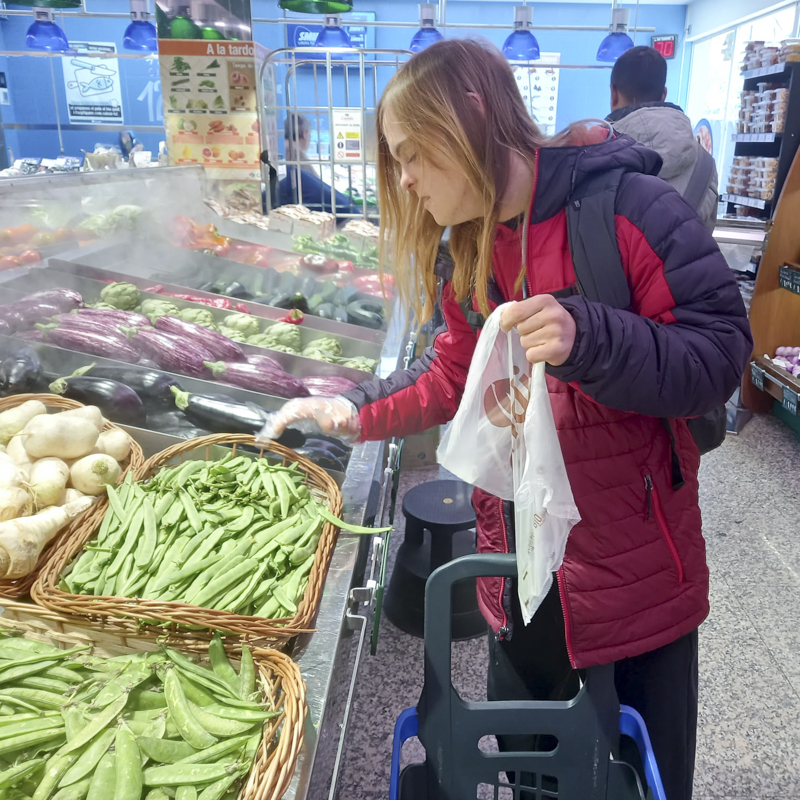
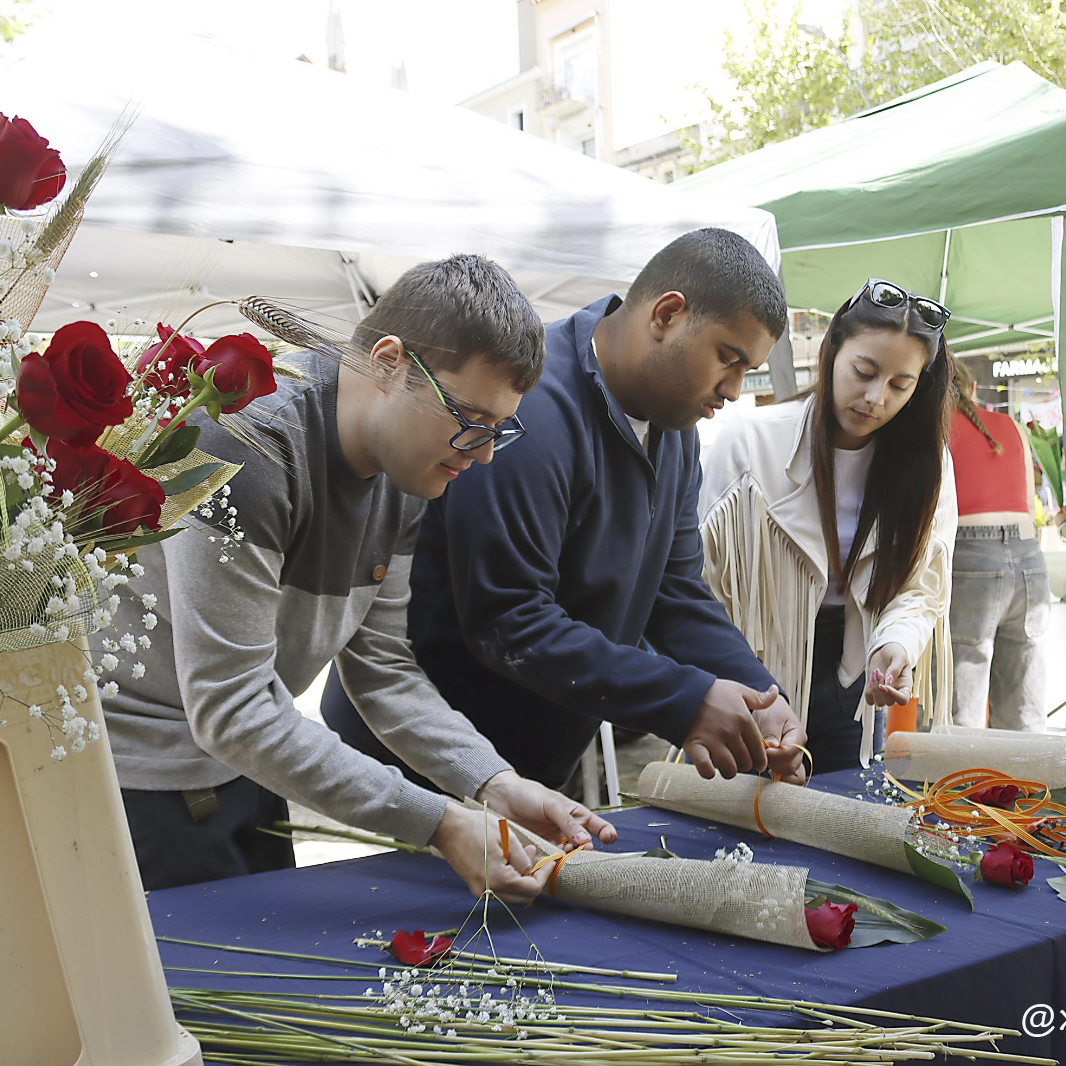
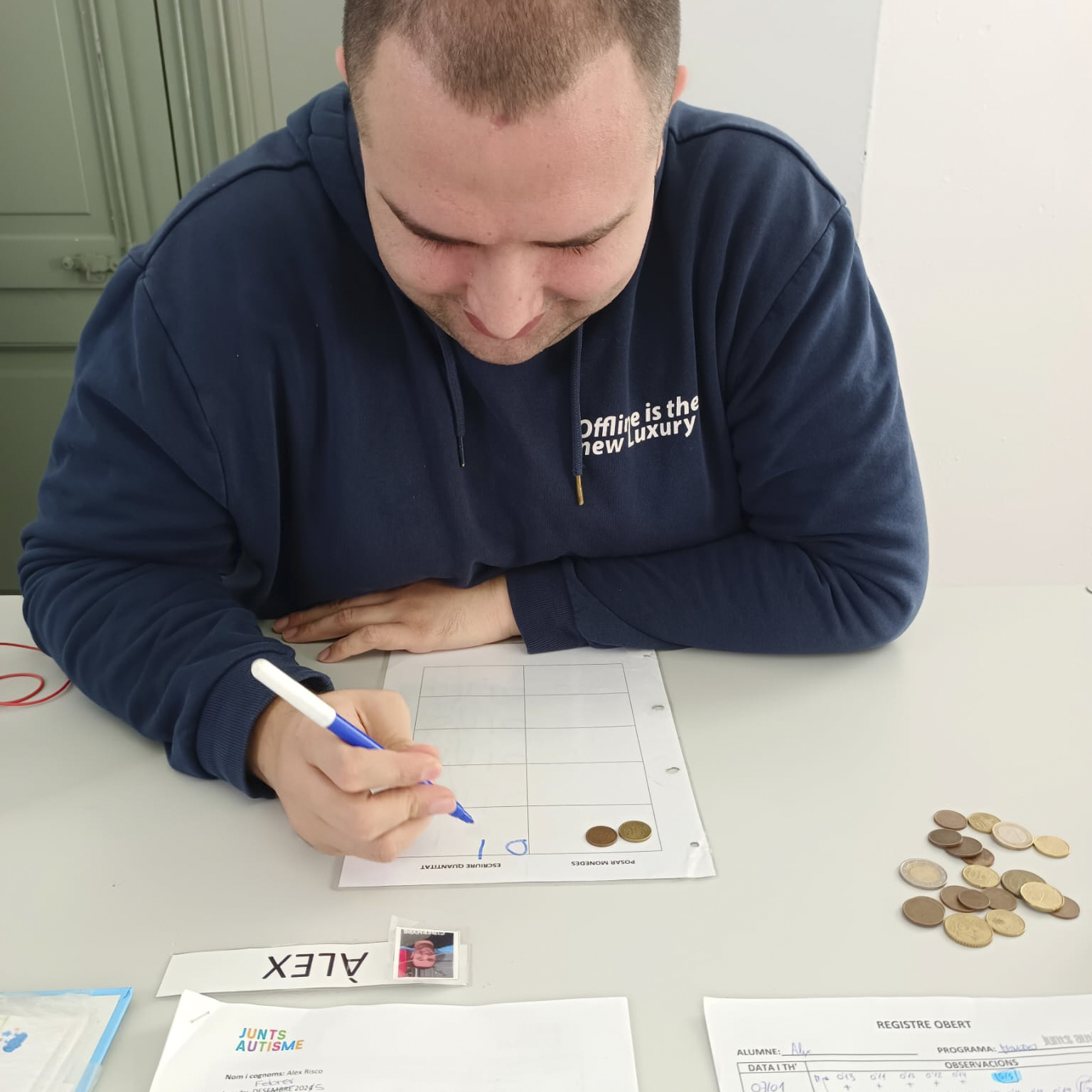
Social inclusion
Social inclusion involves the active participation of individuals in community life, with equal opportunities and without discrimination, being recognised and valued as members of society. For this reason, we prioritise the regular use of community resources in all the activities we carry out, whether they are sporting, pre-work, or leisure activities. This includes using municipal facilities, public transport, local shops, and so on. Before using any service or space, the necessary support and tools are prepared to facilitate understanding of the environment and accessibility.
We also organise group outings on a regular basis. We run four trips a year, each lasting four days and three nights, to interesting and suitable locations for the young people, where they take part in activities that combine fun, leisure, and learning. During these trips, the young people live and interact together, reinforcing their social skills and participation in the community.
Rights
The rights dimension refers to the protection and promotion of each individual’s fundamental rights, ensuring equal opportunities, active participation, and respect for their dignity and uniqueness.
At the EVI Project, we work from a position of absolute respect for the dignity and individuality of each young person with ASD, ensuring a safe, inclusive, and discrimination-free environment in which their fundamental rights are protected and promoted. We ensure that all project activities adhere to the principles of equal opportunities, respect, and active participation.
Self-determination
Self-determination is the ability of each person to make decisions about their own life, express preferences, and take an active role in their life plan. It involves being able to choose, participate, and influence matters that affect them.
At the EVI Project, we support self-determination by respecting the decisions and rhythms of each young person. They are the ones who decide how they want to carry out activities, when to start or finish them, when they need to rest, or if they prefer not to take part in a particular activity. Our role is to provide them with time, options, and support so that they can make autonomous decisions, adapting to their pace and ensuring that each activity is carried out with their well-being and freedom of choice in mind.
If you would like more information about the adult care service we offer at the organisation, you can write to us at: [email protected]
or call us on: 931 808 926.
Services
These are the services we offer Fundació Junts Autisme to
accompany and support people with autism and their families.

